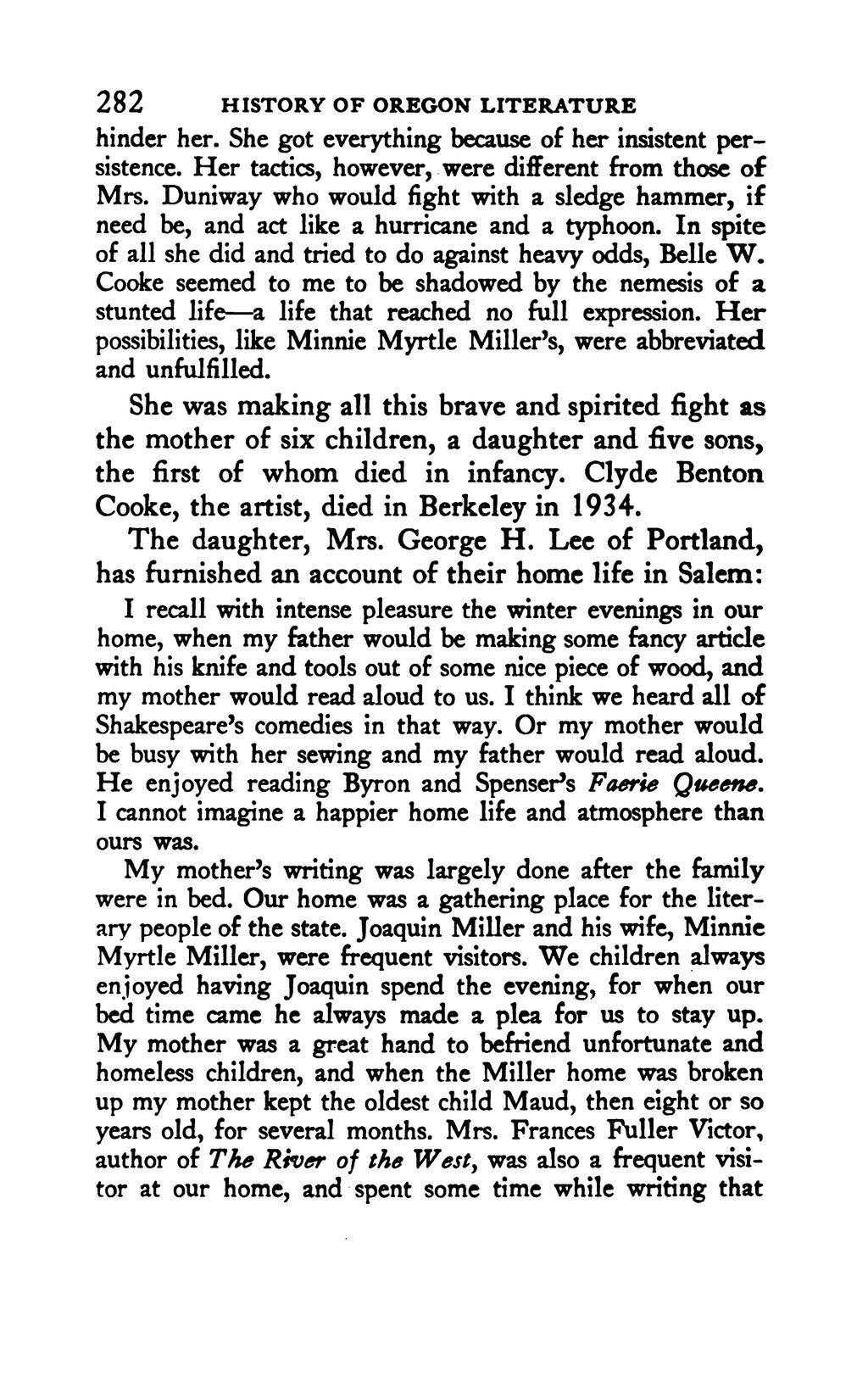hinder her. She got everything because of her insistent persistence. Her tactics, however, were different from those of Mrs. Duniway who would fight with a sledge hammer, if need be, and act like a hurricane and a typhoon. In spite of all she did and tried to do against heavy odds, Belle W. Cooke seemed to me to be shadowed by the nemesis of a stunted life—a life that reached no full expression. Her possibilities, like Minnie Myrtle Miller's, were abbreviated and unfulfilled.
She was making all this brave and spirited fight as the mother of six children, a daughter and five sons, the first of whom died in infancy. Clyde Benton Cooke, the artist, died in Berkeley in 1934.
The daughter, Mrs. George H. Lee of Portland, has furnished an account of their home life in Salem:
I recall with intense pleasure the winter evenings in our home, when my father would be making some fancy article with his knife and tools out of some nice piece of wood, and my mother would read aloud to us. I think we heard all of Shakespeare's comedies in that way. Or my mother would be busy with her sewing and my father would read aloud. He enjoyed reading Byron and Spenser's Faerie Queene. I cannot imagine a happier home life and atmosphere than ours was.
My mother's writing was largely done after the family were in bed. Our home was a gathering place for the literary people of the state. Joaquin Miller and his wife, Minnie Myrtle Miller, were frequent visitors. We children always enjoyed having Joaquin spend the evening, for when our bed time came he always made a plea for us to stay up. My mother was a great hand to befriend unfortunate and homeless children, and when the Miller home was broken up my mother kept the oldest child Maud, then eight or so years old, for several months. Mrs. Frances Fuller Victor, author of The River of the West, was also a frequent visitor at our home, and spent some time while writing that

